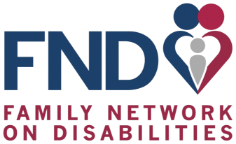INformation Hub
Behavior Expertise
Behavior Expertise
This page in our Behavior Suite focuses on where to access Behavior Expertise.
Find who’s who in the behavior field and where to go for more information, reading, links, and assistance. The list below isn’t intended to be exhaustive of the behavior resources and expertise available to you—those are ever-growing and changing. But each of these links will take you into the behavior expertise that’s out there, where you can find out more and connect with additional resources.
_____________________________
Centers and Projects
Researchers are hard at work trying to pinpoint the reason for a problem behavior and how to provide a resolution. The following groups’ primary purpose is helping students improve their behavior.
Technical Assistance Center on Positive Behavior Interventions and Supports.
www.pbis.org
This site is great for administrators and school personnel who are working to put a school-wide system in place for dealing with disciplinary issues. You’ll find info on Functional Behavioral Analysis (FBA), school-wide support, classroom support, individual support, family support, conferences, presentations, newsletters, tools, and links to further info. Truly, a great site, also available in Spanish from the home page. Check it out!
Cambridge Center for Behavioral Studies.
www.behavior.org/
Did you know that the number and quality of words a child hears in the early years of life have a tremendous impact on the development of their brain? A child’s vocabulary development is closely tied to their early language experiences and to their ability to think rationally, solve problems, and reason abstractly. Wow! This site can teach you how to help improve your child’s language abilities. Specific information is available on autism, Applied Behavioral Analysis (ABA), behavior in everyday life, and parenting.
Technical Assistance Center on Social Emotional Intervention for Young Children.
http://www.challengingbehavior.org
The mission of the Center is to promote the use of evidence-based practices to meet the needs of young children who have, or are at risk for, problem behavior. Find research syntheses on effective intervention procedures, presentation and workshop materials, training opportunities, and a wide variety of useful links.
Council for Children with Behavioral Disorders (CCBD).
http://www.ccbd.net/
This site offers monthly updates on legislation affecting children with behavioral disorders. It offers publications, message boards, an advocacy section, links to other sites, and a quarterly newsletter (available online, free of charge). CCBD is a membership organization, comprised of educators, parents, mental health personnel, and a variety of other professionals.
Kentucky Behavior Page.
http://www.state.ky.us/agencies/behave/homepage.html
To help a child make a change in behavior for the better, you first need to identify the causes of the misbehavior. Check out the Behavior Home Page Discussion Forum, to see what experts in the field are saying. Get resources for supporting behavior on the school-wide, group, and individual levels. Check out links to state and federal legislation. Read about professional resources.
Mental health.
http://www.samhsa.gov/
Take a good look at this site. It has info on children’s mental health, a mental health dictionary, a listing of Indian mental health resources, and a toll-free number to call for help and information. You’ll also find pubs on autism, add, anxiety, depression, conduct disorder, anger management, and more. Selected publications are in Spanish.
National Association on Mental Illness (NAMI).
http://www.nami.org/
You’ll find a ton of info on this site. Check out the reader-friendly overview on mental illness. Join an on-line discussion group for family members. Read personal stories of children and teens with mental illness. Print out fact sheets, brochures, and reading lists. Follow links to other children and adolescent sites. Some resources are available in Spanish.
Professionals Who Can Help
Teachers
American Federation of Teachers
www.aft.org/ (web)
National Education Association
www.nea.org/ (web)
Psychologists
American Psychological Association
www.apa.org/
National Association of School Psychologists
http://www.nasponline.org/
Medical Doctors, Including Psychiatrists
American Academy of Pediatrics
http://www.aap.org/en-us/Pages/Default.aspx
American Psychiatric Association
www.psych.org (web)
American Society for Adolescent Psychiatry
http://www.adolescent-psychiatry.org/
American Academy of Child and Adolescent Psychiatry
http://www.aacap.org/Default.aspx (web)
Counselors
School Social Work Association of America
www.sswaa.org/ (web)
American School Counselor Association
www.schoolcounselor.org/ (web)
American Counseling Association
www.counseling.org/ (web)
They Mean By…?
Need help understanding all of those jargony terms you’re encountering as you delve more deeply into behavior concerns? With these glossaries, dictionaries, and cheat sheets, you can sound like an expert yourself.
Behavior terms.
http://www.scienceofbehavior.com/lms/mod/glossary/view.php?id=408
This online database houses over 2,000 behavior-related terms. Whew! Who would’ve thought there could be so many?
SOURCE ARTICLE: Center for Parent Information & Resources
Give us a call at (727) 523-1130 or (800) 825-5736 or request a callback by clicking below.
311 South Missouri Ave, Clearwater, FL 33756
(727) 523-1130
(800) 825-5736

